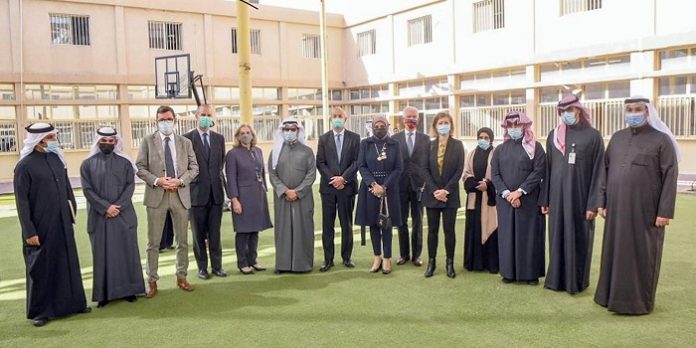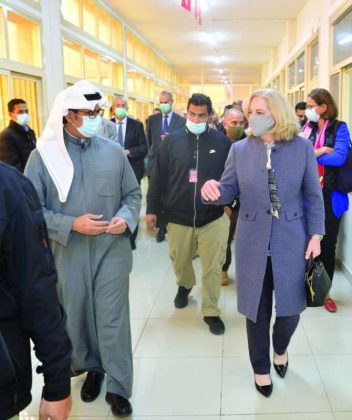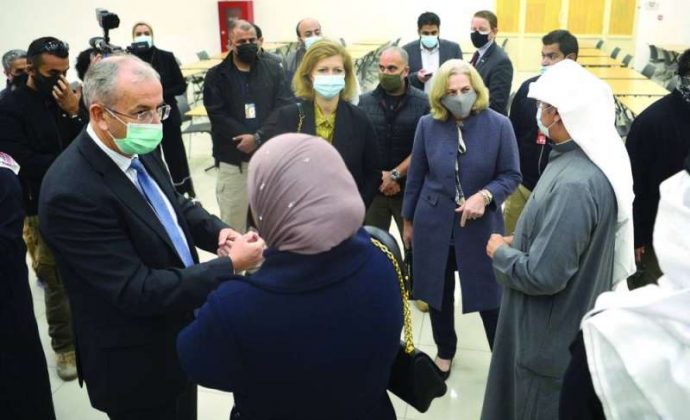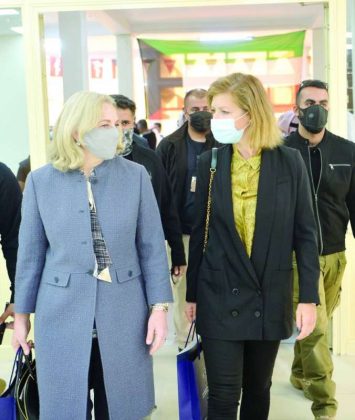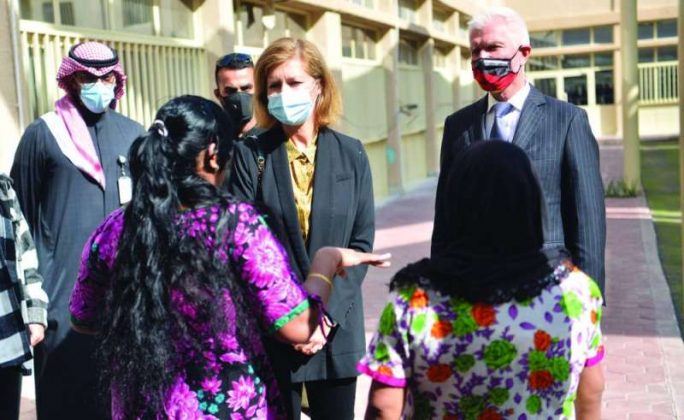Six foreign ambassadors along with media were given a tour of a shelter in Jleeb Al-Shuyoukh on 27 January that is providing housing to 125 expats, most of them domestic workers, and victims of trafficking and labor abuse, Al Qabas daily reported. Among the list of issues they face, some of these domestic workers have been subjected to abuse that forced them to violate the residency law or their sponsors have refused to renew their residency. They sought refuge at the shelter, which is considered a beacon of the country’s humanity.
The Ambassadors of the United States, United Kingdom, France, Germany and Australia were part of the tour of the labor shelter supervised by the Deputy Director General of the Public Authority for Manpower for Labor Affairs, Abdullah Al-Mutouteh. He explained to the ambassadors of the six countries about Kuwait’s experience and its procedures for protecting expat employees, especially domestic workers, with institutional and governmental cooperation working to end the expats’ pending problems and restore their rights.
The ambassadors were also informed about the methods for upholding the rights of expats at the shelter, and how solutions were reached before facilitating their return to their home countries or reaching agreements between employers and the employees, for which Kuwait’s concern received praise.
The French ambassador was briefed on the story of two Sri Lankan workers who arrived at the shelter 7 months ago due to the closure of the airports and the difficulty of travelling in light of the Coronavirus pandemic, and they expressed their happiness with the good treatment inside the shelter, where they were treated well.
Al-Mutouteh stated that there are 125 female expats currently in the shelter, among them 77 who were caught in violation of the residency law and 48 who requested shelter, and work is underway to solve their problems. He also mentioned that all health requirements are adhered to.
Regarding the tour, Al-Mutouteh pointed out its aim was for allowing the Ambassadors to see the shelter and the work of the authority, especially during the Coronavirus pandemic, and the deportation process for domestic workers in the shelters, and the role of the authority to ensure these workers enjoy legal protections.
The heads of diplomatic missions listened to a detailed explanation of the mechanisms of entry, and departure of these expats, and the parties that coordinate with the authority to facilitate the expats leave even within a short period. Al-Mutouteh noted that the expats at the shelter were provided with amenities including accommodations, meals, and protection until they are permitted to leave the country.
He touched on the role of the commission and its coordination with international organizations in the matter of organizing the recruitment mechanism and legal protection, through a project with UNDB and the General Secretariat for Planning, which has been started and will be in two phases.
Also mentioned was the great interest in preserving human rights by the concerned authorities, which is also why there are processes in place to help female inmates to communicate with their families outside the country.
The United States of America Ambassador H.E. Alina Romanowski said, in a statement on the sidelines of the tour, that this tour is an excellent sign of cooperation and understanding of Kuwait’s efforts in the field of human rights and the special care provided to domestic workers,” adding, “What has been viewed is a great thing, and the efforts made to accommodate the workers in need of assistance are good,” Al Rai daily reported.
On his part, British Ambassador H.E. Michael Davenport highlighted the close cooperation that Kuwait extends with the International Labor Organization and embassy representatives, in addition to its large role in meeting the expats’ needs during the accommodation phase and before departure.
German Ambassador Stephen Moebs said, “The visit provided extensive and comprehensive information in the field of preserving workers’ rights and sheltering those in need,” stressing that he is looking forward to another visit to see developmental projects in the matter of affected workers.
The French ambassador, Anne-Claire Legendre, mentioned that there is cooperation with Kuwaiti institutions to view the efforts towards helping expat workers, especially domestic workers.
She added that the tour allowed them to learn about the institutions’ work in handling employment problems, facing challenges and efforts made to overcome difficulties, return workers to their home countries, and grant them their rights in light of their specific problems.

